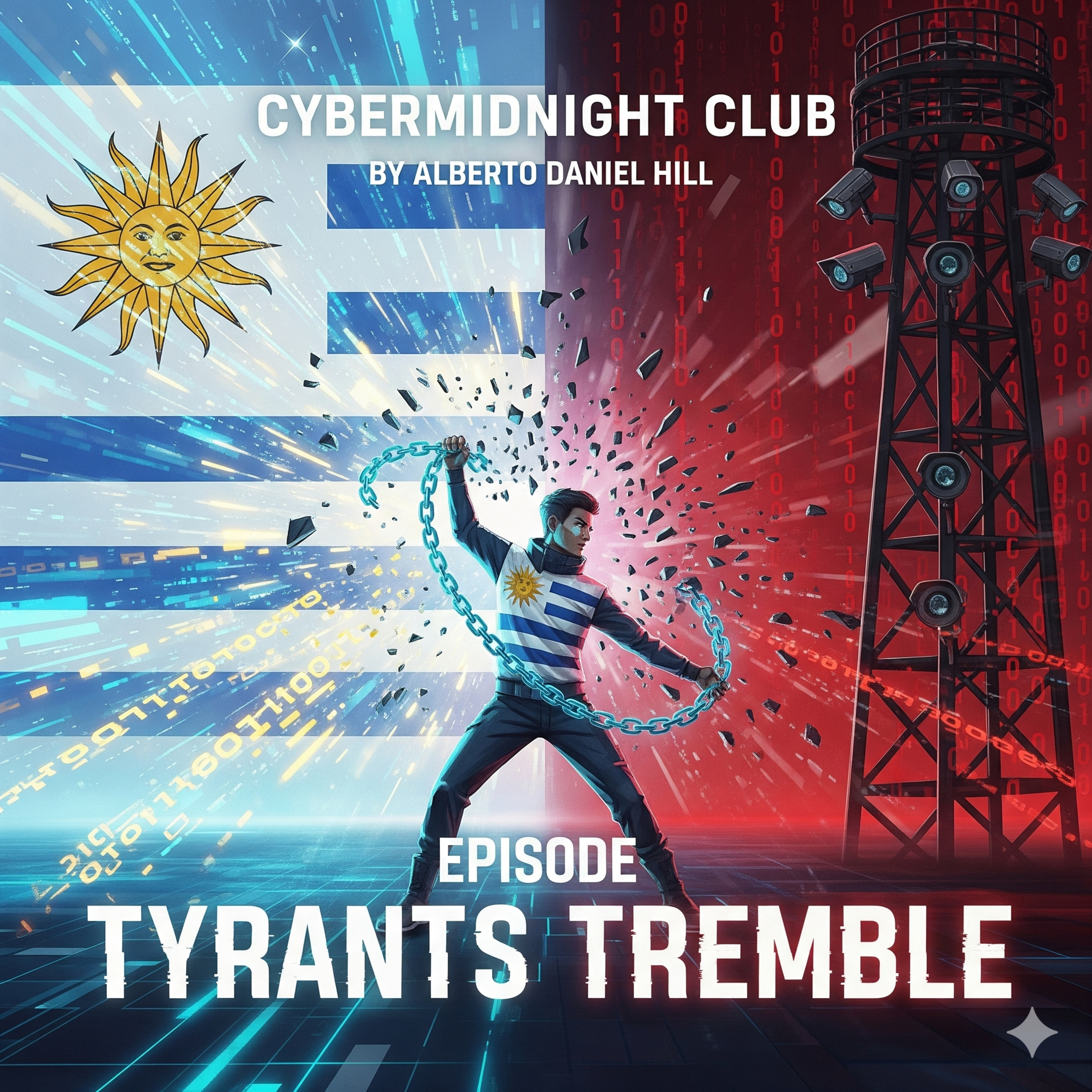The Homeland or the Digital Tomb: Alberto Daniel Hill, the Political Prisoner and the National Anthem as a Manifesto for Justice in the Age of Surveillance.
- Author
- Alberto Daniel Hill
- Published
- Mon 01 Sep 2025
- Episode Link
- https://podcasters.spotify.com/pod/show/darkwebtoday/episodes/The-Homeland-or-the-Digital-Tomb-Alberto-Daniel-Hill--the-Political-Prisoner-and-the-National-Anthem-as-a-Manifesto-for-Justice-in-the-Age-of-Surveillance-e37itmt
The struggle for justice in the digital age is not a new phenomenon, but the continuation of a historic battle for freedom and human dignity against the changing forms of oppressive power. To understand the nature of this new conflict, it is necessary to draw a bridge between the struggles of the past and the challenges of the present. This report proposes a framework of analysis inspired by a powerful metaphor: an imaginary conversation between two archetypal figures. The first is a traditional political prisoner from Uruguay, a militant of the 1970s or 80s, whose resistance was forged within the walls of a physical cell, facing psychological annihilation and torture. The second is Alberto Daniel Hill, a 21st-century cybersecurity expert, who became the first "hacker" imprisoned in Uruguay, a prisoner not of a military dictatorship, but of a technologically illiterate judicial system.
In this conversation, the language that unites both generations of wrestlers is the National Anthem of Uruguay. His verses, which evoke the trade-off between sovereignty and submission, freedom and tyranny, heroism and sacrifice, prove to be a surprisingly pertinent code for articulating the dilemmas of justice in the digital age. The experience of the political prisoner of yesteryear, focused on countering a "policy of annihilation" and building a "very high morale" in conditions of harassment and humiliation, finds a disturbing echo in the information age. Reputation-destroying tactics, judicial persecution of those who expose systemic failures, and pervasive mass surveillance are the new tools of a power that seeks the same end: the neutralization of dissidents.
Alberto Daniel Hill emerges as the emblematic protagonist of this new era of resistance. His career, from renowned computer security expert to victim of "unfair prosecution"
